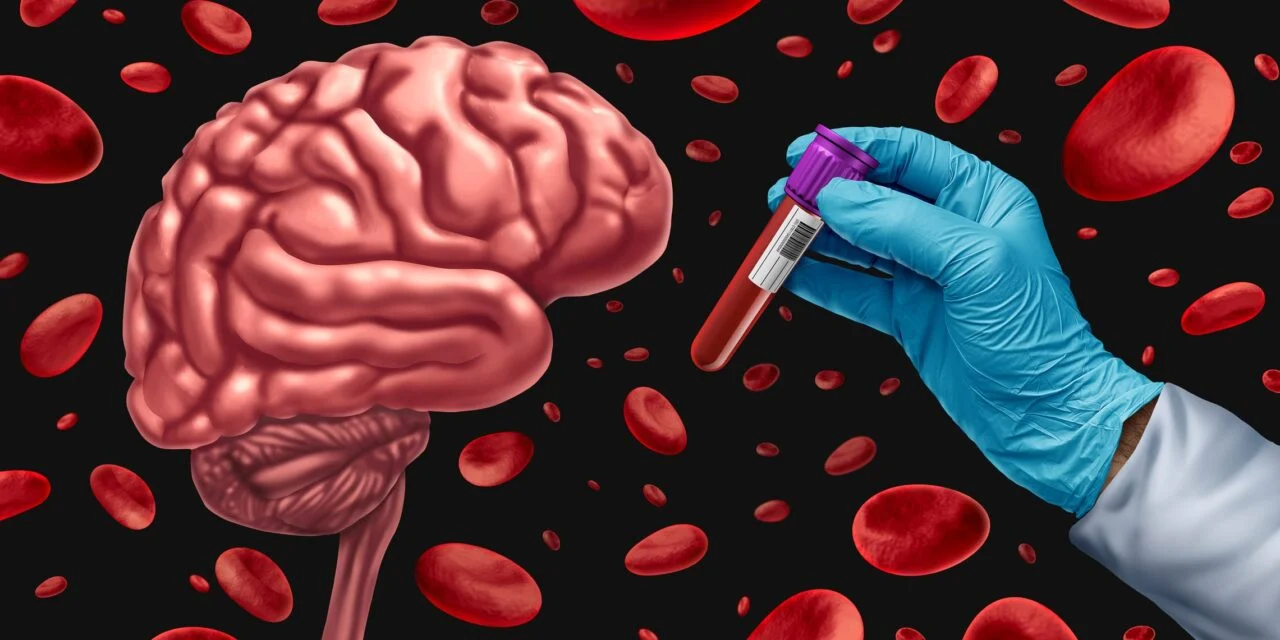Two biomarker panels demonstrated 91% sensitivity and specificity in symptomatic patients, potentially reducing the need for PET imaging confirmation.
Two blood-based biomarker tests have demonstrated accuracy levels that meet guideline-based criteria for confirming Alzheimer’s disease without follow-up testing, according to a new study published in Neurology Clinical Practice.
The study, conducted by Quest Diagnostics scientists and researchers from 1Florida ADRC at the University of Florida, evaluated two blood tests in 215 patients with mild cognitive impairment or Alzheimer’s disease. Both tests achieved 91% sensitivity and 91% specificity, meeting performance thresholds recommended by the Alzheimer’s Association and Global CEO Initiative on Alzheimer’s Disease for confirmatory blood biomarker tests.
“This study demonstrates that scalable blood-based testing can meet rigorous standards for establishing Alzheimer’s disease pathology, supporting diagnosis and advancing patient care for Alzheimer’s disease in the intended use patients,” says Michael Racke, MD, a board-certified neurologist and senior medical director of neurology at Quest Diagnostics, in a release.
Two-Panel Comparison
The study evaluated two blood-based tests developed by Quest Diagnostics. One of the tests produces a likelihood score based on results of circulating blood levels of the biomarkers amyloid beta (AB) 42/40, phosphorylated tau (p-tau) 217, and ApoE4 proteotype (reflecting inherited high-risk APOE4 alleles). Quest plans to launch a version of this test in the first quarter of 2026. The second test included amyloid beta 42/40 and p-tau217 but excluded ApoE4. Quest launched a version of this test, called AD-Detect ABeta 42/40 and p-tau217 Evaluation panel, in April 2025.
In the study population, where 46% of patients were amyloid PET-positive, the three-biomarker panel achieved a positive predictive value of 88% and negative predictive value of 91%. The two-biomarker panel showed slightly lower positive predictive value at 87% with the same 91% negative predictive value.
The indeterminate rate was 10% for the test with all three biomarkers and 15% for the test without ApoE4. The Global CEO Initiative recommends that blood-based tests for confirmatory use classify no more than 15%-20% of individuals with indeterminate results.
Meeting Industry Standards
Both the Alzheimer’s Association and Global CEO Initiative recommend that blood-based tests for confirmatory use without follow-up testing achieve approximately 90% sensitivity and specificity, comparable to cerebrospinal fluid testing. The Alzheimer’s Association recommendations apply to patients with objective cognitive impairment in specialized care settings, while the Global CEO Initiative recommendations pertain to patients where amyloid positivity likelihood exceeds 50%.
“Our analysis also suggests that blood-based testing can achieve a rate of indeterminate, or unclear, results, as low as 10%. A low indeterminate rate means more providers and patients may confidently use test results to help make clinical decisions in real-world settings,” says Racke in a release.
Quest performs amyloid beta 42/40 and ApoE4 proteotype using proprietary tandem mass spectrometry techniques and p-tau217 using a third-party immunoassay. The AD-Detect tests are intended for use by physicians to evaluate patients with symptoms of cognitive impairment or Alzheimer’s disease.
The findings were presented at the American Academy of Neurology’s Annual Meeting in San Diego in April 2025. Nearly 7 million Americans have been diagnosed with Alzheimer’s disease, with projections reaching 14 million by 2060.
ID 294234508 © Skypixel | Dreamstime.com





